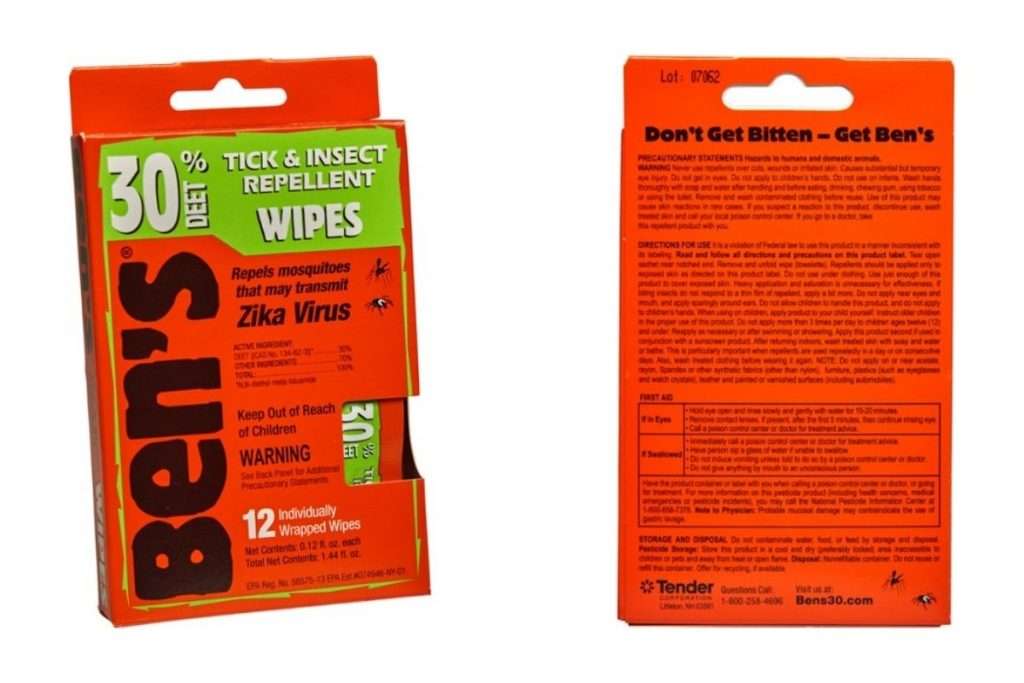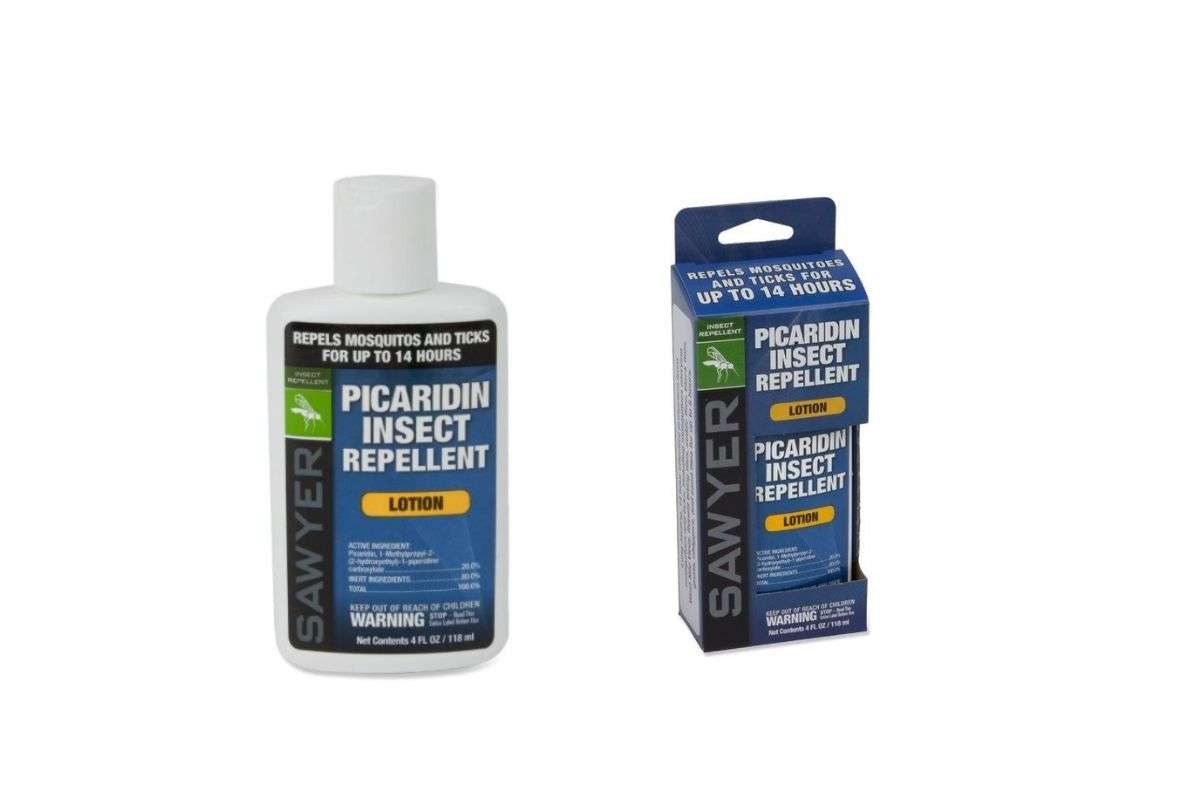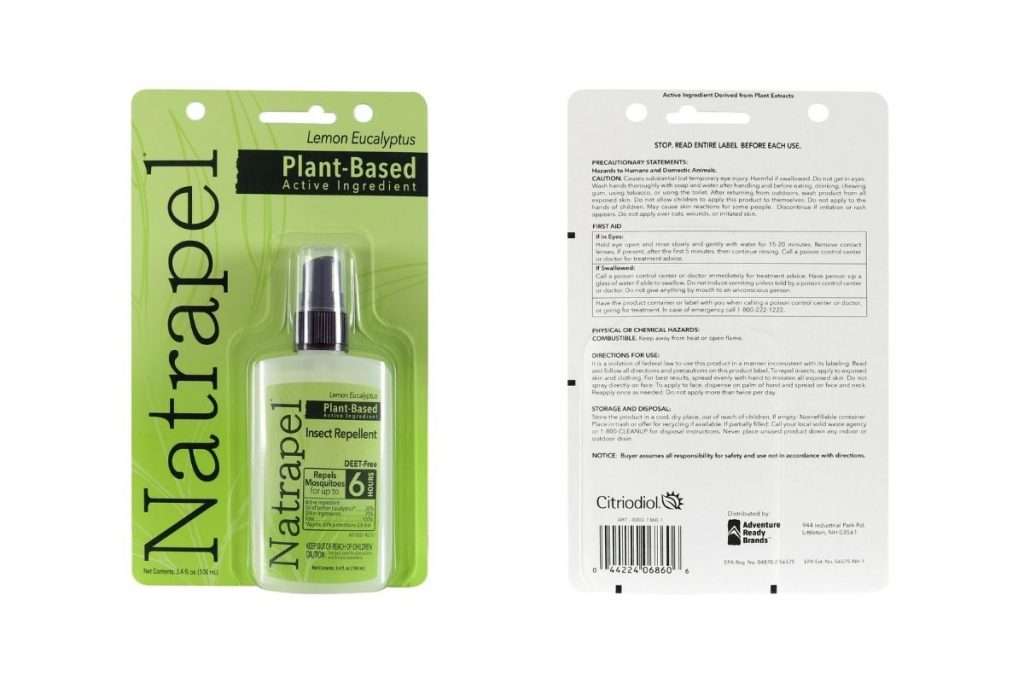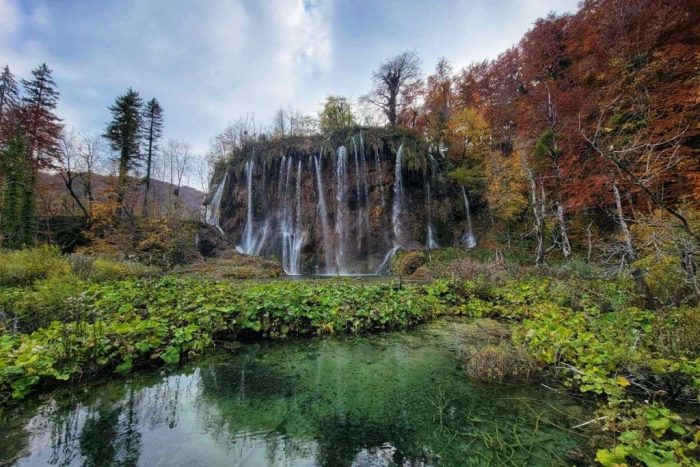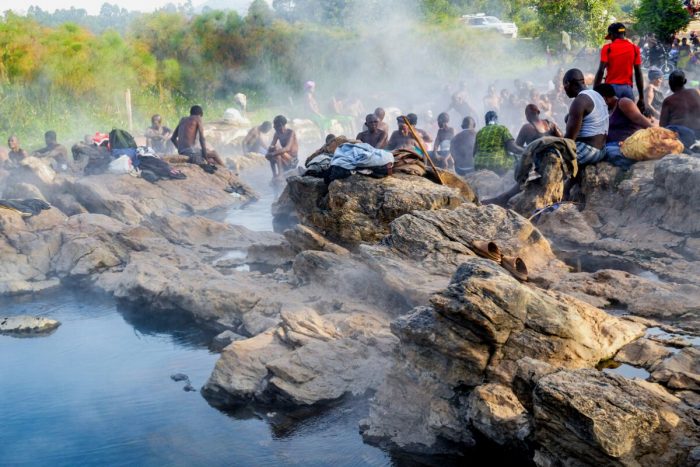Best Mosquito Repellent for Camping, According To Our Guides
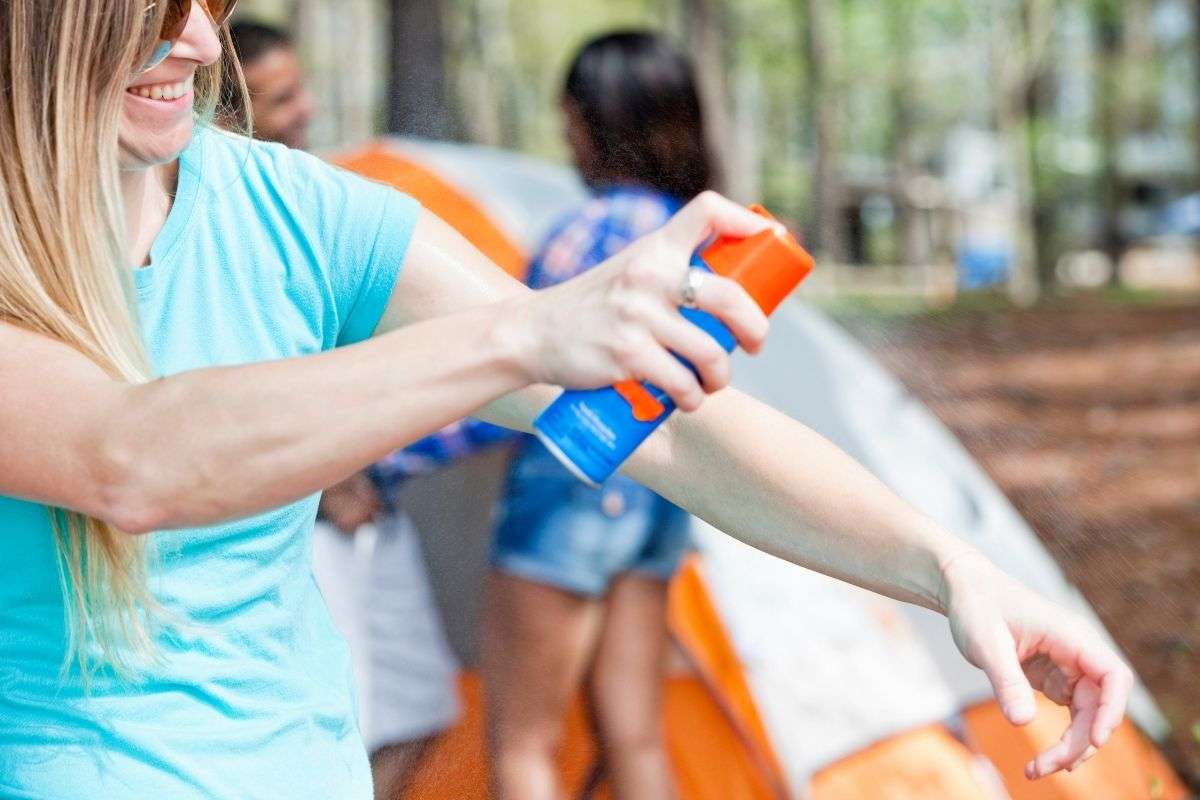
*Disclosure: we independently choose all product recommendations. When you buy from product links in our posts, we may earn a small commission at no extra cost to you. This supports our ability to provide the best advice possible.
This is a part of our review series, where we give detailed reviews of all of the gear that we use on our trips. You can see the full list of gear here.
Biting insects are the campfire guests nobody invited, yet felt welcome anyway. Among any number of potential hazards in the great outdoors, such as interaction with wildlife, a lack of sun protection, or unpredictable weather, biting bugs and pesky mosquitoes are generally harmless, aside from being extremely annoying.
However, in certain climates, mosquitos are capable of transmitting diseases to humans, such as the West Nile virus.
Knowing how to repel insects and other pesky bugs, helps you to stay protected, and prevent your camping trip from becoming a total itch fest.
While mosquito nets, citronella candles, and bug zappers are considered tried and true techniques, today we’ll be discussing some Explorer Chick-approved faves to help repel mosquitoes.
Insect Repellent Wipes
Explorer Chick Founder Nicki Bruckmann loves Insect Repellent Mosquito Wipes for their transportability and convenient packaging. They are great for the camping gal or high flying gal on the go. “You can take them on the plane”, Bruckmann says.
Wiping one of these repellent pads along exposed skin provides up to ten hours of protection from mosquitoes and other insects like ticks and gnats, with each wipe containing only 30% DEET.
Sawyer Picaridin Insect Repellent Lotion
A deet free, natural repellent made without the use of harsh chemicals, the Sawyer Picaridin Insect Repellent Lotion is a fantastic alternative for treating sensitive skin while repelling mosquitos.
An effective lotion used to deter mosquitoes for up to 14 hours, reviews tout it as one of the best repellents for camping, while keeping many bugs and flying insects at bay. “This is the ONLY thing that works for me”, gushes Explorer Chick Guide, Kirstie Mullikin.
Plant-Based Lemon Eucalyptus Insect Repellent Pump Spray
Explorer Chick Guide, Lauren Beatty swears by the Plant-Based Lemon Eucalyptus Insect Repellent Pump Spray. “I love this one! It’s less harsh and smells great. We used it at the zoo and in Namibia and Belize for zoo education programs”, Beatty says.
Formulated with lemon eucalyptus oil, this bug spray repels mosquitos for up to six hours. Unlike DEET-based mosquito repellents, this pump spray is DEET-free.
Options for Repelling Mosquitoes
There are many options nowadays to help you and your squad repel bugs while minimizing irritating insect bites. Here are a few great mosquito repellent alternatives, for those seeking options beside repellent sprays.
- Bug Zapper: This mosquito repellent device usually comes in the shape of a tennis racket, and is used to zap pesky mosquitoes. Bug zappers are activated by a button, which you press to release an electric current through the wired framing located in the middle of the zapper.
- Citronella Candle: A familiar smell that brings back fond memories of childhood camping trips. Obtained through the leaves, stems, and oil of lemon eucalyptus, or lemongrass, citronella oil is found in many natural bug repellents, and is widely considered one of the best for biting flies and other bugs.
- Citronella is also met with skepticism, among other essential oils and natural repellents, with their true efficacy often called into question as a natural mosquito repellent. When utilizing essential oils as a natural bug repellent, conduct ample research before purchasing bug sprays, insect repellents, or other protective products as part of your camping gear.
- Repellent Mat: Swap out your old camping lantern for a repellent-equipped camping lantern instead. Repellent mats or cartridges are inserted into a lantern (the ThermaCELL Camp Lantern is a good option). Unlike smelly spray repellent, the camp lantern releases an odor-free chemical used to repel mosquitos, providing a 15 foot zone of protection.
- Mosquito Net: Commonly used in African countries where even simple mosquito bites can be a matter of life and death, mosquito nets are one of the best bug repellents while also providing shelter. Options range from individual mosquito nets to deluxe mosquito net walls that can be attached to your car, such as the Thule Tepui Mosquito Net Walls.
How to Choose the Best Bug Repellent for Camping
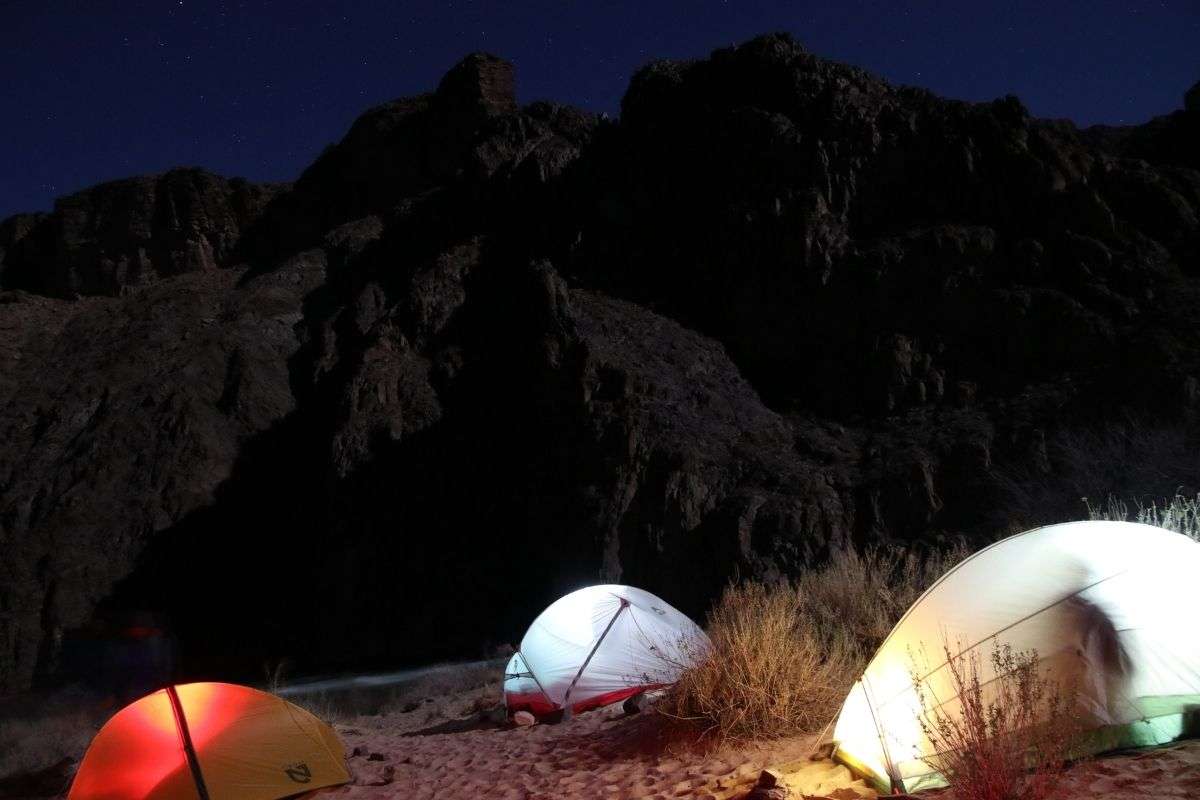
We’ve included our top picks below for the best mosquito repellent products by ingredient, as well as a few pros and cons to help with your purchase of repellent spray. The next time you find yourself needing to repel, rather than attract mosquitoes, try one of these!
Deet mosquito repellents
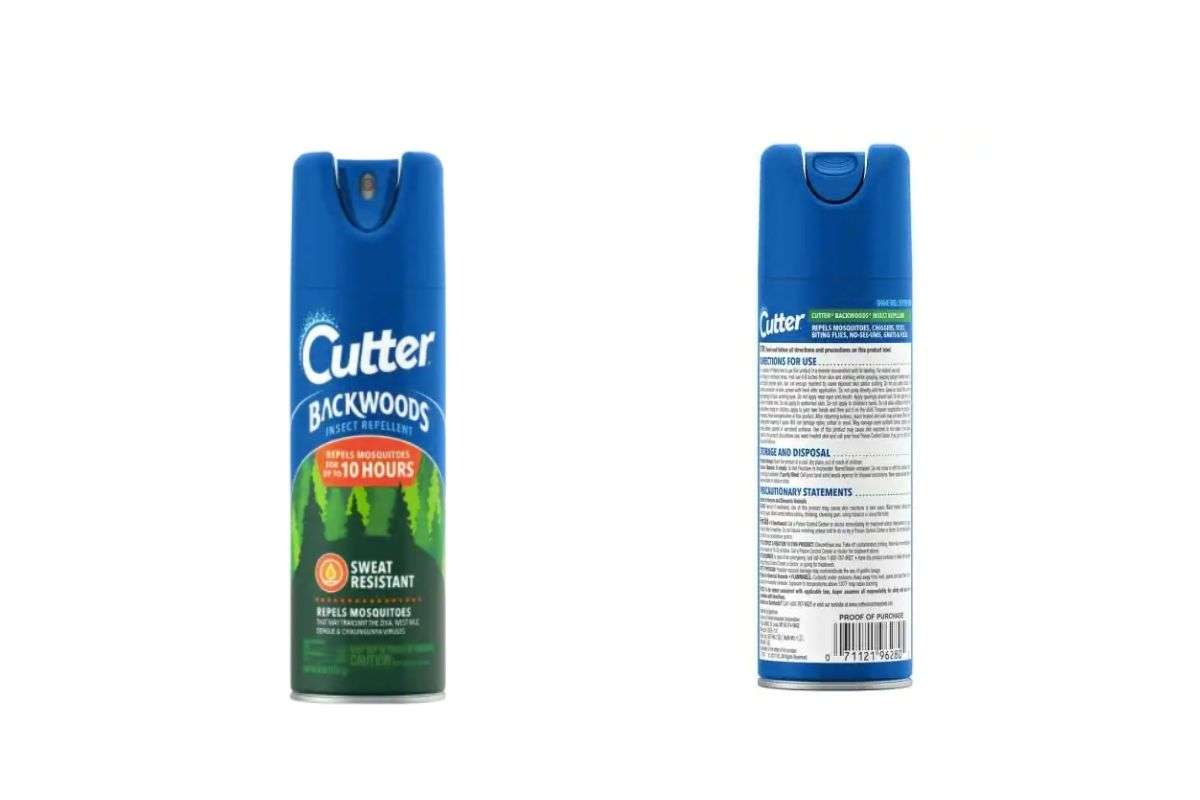
Deet repellents are primarily composed of the active ingredient, DEET, and are used in many types of repellent spray. It is considered to be the most widely used repellent in the world and comes in a variety of formats and percentages, as well as time-released formats which offer a slow release of the product over time.
DEET repellents are a common form of mosquito protection, and the ingredient itself is approved by the environmental protection agency. While some people feel leery about using DEET-based products, the opposing risks of contracting viruses from disease-carrying mosquitoes are much higher. More than 30,000 reports of Lyme disease (commonly contracted by deer ticks) are received by the Centers for Disease Control and Prevention every year.
The Cutter Backwoods insect repellent is our top pick for the best mosquito repellent spray containing DEET. Its sweat-resistant formula contains 25 percent DEET and is conveniently packaged in an aerosol spray format.
A few notes about DEET before you spray it all over everything:
- Do not apply it directly to your skin or your skin will begin to peel. It’s also a highly toxic chemical (um, hello mosquito genocide), so it’s best to spray it on your all natural materials, like cotton tees or wool socks
- Do not apply it to plastic-based materials, like sunglasses, synthetic fabrics, like rayon or spandex, or painted varnishes. The DEET chemical will strip these items, aka melt the surface, and that’s not really the kinda look most people are going for.
- DEET does work its way into the environment, such as the soil and water, so be mindful of how and where you’re spraying it. That being said, the amount of DEET that makes it to the environment is mostly negligible. While it would be toxic to birds, fish, and aquatic invertebrates, the amount of DEET that would be needed to saturate the environment is more than we are applying to ourselves while camping.
Picaridin bug repellents
Considerably matched in its efficacy when compared to DEET, Picaridin bug repellent is a younger product than DEET, which was originally formulated by the United States Military in the 1940s.
Our top pick as we briefly mentioned above is the Sawyer Picaridin Insect Repellent Lotion. Coming in at four fluid ounces, the non-greasy formula is light and easy to pack on any camping and hiking trip, and provides protection against mosquitoes for up to 14 hours.
How to Deal with Itchy Bites
Bug bites can often be mitigated before they even happen with repellents for camping and netted materials like a screen room. If you do get bitten, applying calamine lotion or nonprescription hydrocortisone cream can help to ease the itchy sensation.
Over-the-counter antihistamines are another on-the-go solution to mosquito bites, as these can reduce the itch, as well as lessen any redness. Finally, applying an ice pack to the bite helps reduce swelling.
What are your go-to solutions for dealing with mosquitos? Let us know on Facebook, where Explorer Chicks from around the world share their camping and hiking tips.
Meet the Writer

Lindsay Stroud
Lindsay Stroud is a freelance content writer and ghostwriter from Vancouver, Canada. Her published works can be found on Jiyubox and Passion Passport, in addition to producing ghostwritten content for Owl Labs and Wonderment. Her favorite destinations include Berlin, Stockholm, and Florence. In her spare time, you’ll find her exploring local foodie joints throughout her neighborhood, or planning itineraries for future trips.
Favorite Outdoor Adventure: spending time by the ocean and exploring walking trails in her local neighborhood.
Learn More Camping Tips
- How To Keep Your Feet Warm During Winter Hikes
- What To Wear Hiking In Hot Weather
- Best Campsite Lighting Ideas for Your Next Trip to the Woods
- How to Identify Poison Ivy (And How to Treat an Allergic Reaction)
- Going for a Hike? Here’s the Best Hiking Clothes for Women
- Best Mosquito Repellent for Camping, According To Our Guides
- Review: Kula Cloth, The Antimicrobial Pee Cloth For Hiking
- Review: Garmin inReach Mini

